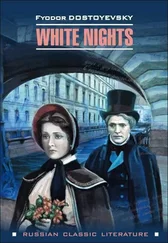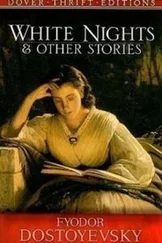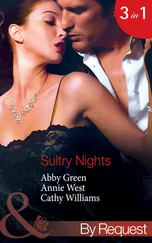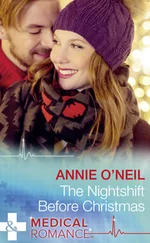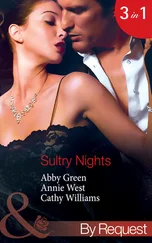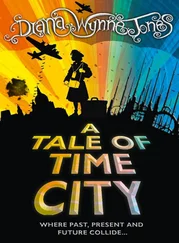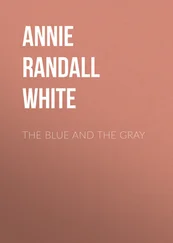“The Black Hills,” Mother had said tracing the landmass with her finger on the old Atlas that afternoon at the butte with Birdie in her lap as the cars had swooshed by us below. The Long Walker’s body, the gold of its coat still slick with sweat, was the final remnant of Wilson’s leaving us. The cat had done our killing for us. All we needed was one damp strip of flesh to know that we were human. If our graces got the better of us, we could stand in that gully and someone would off us. In the meanwhile, we could start anew.
The following week Granny Olga was back to Schenectady. She was having trouble with her mechanic heart. I woke one night to find her in the kitchen making a cake for her husband, John-John. All that remained of John-John was that white Panama hat in the back of Granny Olga’s Buick and his headstone in the cemetery upstate. Even his pension wasn’t lively anymore. Granny Olga stood in the kitchen that night and said she couldn’t find her breath. She only had a thin slip on. Beneath it, her body sagged and folded. She looked at the microwave and told me, “I’m going skating all the wrong ways.”
Mother put her on the Vermonter. There was a doctor near the Canada border. “You can count on him,” Mother said to Granny Olga as she boarded the train. “He’s a specialist.” Someone would fetch her at the other end. Maybe an aunt. Maybe her sister. Maybe a service that fetched people who got dropped off.
Granny Olga wore her fur out our front door.
That night at dinner Mother was into her wine. A big bottle of utility white. Reds, she said, reminded her of youth and all those churches with their sepulchers and their sipping cups.
Father brought out his box of White Owls and his carton of drawing pencils after dinner. He smoked a big smoking blunt in the living room and whittled away at the tip of his charcoals. He planned to lay his small-boned wife out on the L-shaped settee under the windows and draw some mercy into each of her curves.
Together, he and Mother were deep into their stash of vinyls. We were sitting in the living room, my parents still rocketing on the fibers of their imbibing, Birdie and I gutted of sleep, when the first sparks shot off the roof of the pheasant farm that sat on the Doctor’s run.
It was Birdie who first noticed the flames. “Fire,” she said pointing out of Mother’s windows at the smoke rising over the cornfields.
“It must be a brushfire,” Father said. “What with the drought.”
“Should we go see?” Mother said. “Just to be sure?”
We drove over in the Honda. Birdie and I were allowed. There was no one home to watch us, Mother reasoned. What if the flame leapt? What if it found its way through the gap in the fence? We had our five acres. We had Father’s land. We had all those future fir trees to drag in over the deck.
“Wait in the car,” Father said to Birdie and me as we pulled off the road a short distance from the smoke.
Otto was standing in the clearing across from the fire, the lights of his Caddy trained on the pheasant coup. I hadn’t seen him since that afternoon in his kitchen with Callie. He looked old, thin, nearly transparent in the darkness. Just another piece of fabric on the line the wind could blow around.
Birdie and I rolled down the windows to try to hear what the adults were saying. The air stank from the pheasants burning. I pictured the entire roost — all of the doctor’s prize — flying up in one wild swoop unleashing their fetid stench. They’d escaped our Rogers and our Remingtons. “It’s a shame they’ll never be hunted,” Otto said. “So much breeding gone to waste.”
Father circled the coup once, dragging his toe behind him as though drawing an invisible line in the sand over which the fire dare not cross. Mother stood behind Otto watching the black plumes where they merged with the night. The air had a poison on it. It reminded me of the scent of ammonia after Granny Olga blanched the tub. “Amateur job,” Otto said. “They opened the windows first to make sure to let in enough air for a good flame.”
“That’s an old crime,” Father said. “Where’s your evidence?”
“Multiple points of ignition,” Otto said. “Next, they’ll search for traces of accelerant. Looks like the work of those young bucks with the dogs.”
We waited until the fire trucks came. Once they arrived, they put up their yellow tape. The men rushed in with their helmets and their coats. A thick white powder shot out of their hoses.
“Don’t hustle any,” Otto said to them. “It’s not like there’s an emergency here.” He carried a cane. As he wandered around directing, he looked nearly crippled.
After they put down the flame, they turned off the sirens. The earth had a blackened hallow feel. Everything was wet. A light rain smoldered what was left of the ash.
Father took the roads slowly on the way home. We cranked down the windows and drove by all the people in their houses where the lights fell down at the end of the day. I let my arm out to catch the breeze. I thought about what it takes for a family to fall out of love with each other. Who knew how long this would keep? Our four bodies in this bucket of tin cruising the back roads of some town we only half recognized in the shadows. The rain was loud in the branches. Everyone had gone to bed except for the dogs.
On the bus home the day after the fire I found Fender, drunk and shitty. He looked tired, like some of the smut from his brother’s walls had rubbed off on him. I hadn’t seen him in some time. There was still that line between us. There was still the way he’d said, “Sing me something sweet. Sing me that one about San Francisco.” He’d said, “You’re that old man’s little darling.”
“Faker,” I said as I passed him. “You just wanted to show up this morning so that one of us could say we heard your voice chime in when the teacher called roll. ‘Fender Steelhead?’ she said. ‘Yes,’ you said. You just wanted us to hear her call your name.”
I wondered how long he’d spent washing the soot off his arms.
Perhaps he didn’t care. Perhaps he’d already stepped over that white line and didn’t plan on coming back. He was already sitting with K, or Kat or Katherine, when I boarded. As we neared K’s stop Fender began tossing packets of rubbers over the seat. The rubbers were small and red. K took one out and blew it up and the two volleyed it like a balloon.
I didn’t know what a rubber was. But I knew that there was something ugly between them. I knew K would’ve taken Fender’s hand in hers and invited him upstairs to Mother’s bed. Perhaps she already had.
When I arrived home Mother was in the yard. The horses were tethered to the crossties we’d strung between the electric poles where we parked the cars.
“What about Otto?” I said.
“What about Otto?” she said.
“Nothing,” I said.
“I don’t like how he looks at you,” she said.
“Where will we keep them?” I said.
“We’ll build our own barn,” she said. “In the meantime, we’ll board at the farm up street. I called this morning. They’ve got room.”
“They’ve always got room,” I said.
We led the horses up the road toward the new barn. I thought of the night Fender and I sat on the boulder in front of the drive to the Starlings’ house. I thought of the old blind guy in the golf hat and his fat wife. And too of Father walking down the road next to Otto dragging the Shetland’s blanket. “I haven’t stolen anything yet,” Father had said to Otto.
Mother and I walked in silence. The only thing between us was the sound of the horse’s hooves in the dirt of the road.
“They’re paving this fall,” Mother said glancing down at the places where the dust had gathered around her boots.
Читать дальше
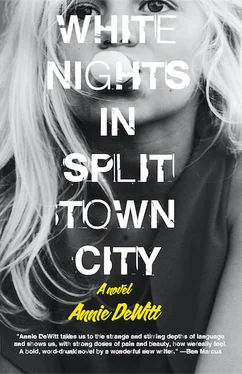
![Элизабет Ленхард - Свидание со смертью[Date With Death]](/books/79651/elizabet-lenhard-svidanie-so-smertyu-date-with-dea-thumb.webp)



